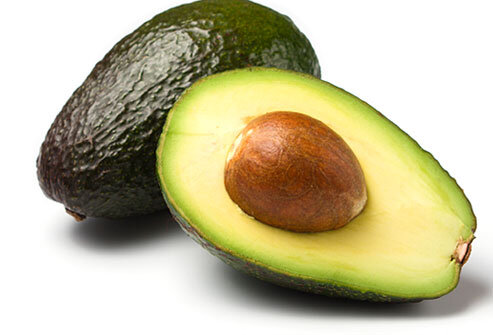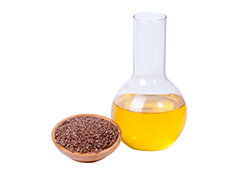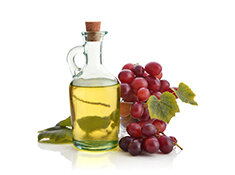FATS & OILS
Not just for guacamole! Avocados are notorious for their monounsaturated fats that help decrease LDL, or bad cholesterol levels and raise healthy HDL cholesterol. Avocados can act as a “nutrient booster” by helping increase the absorption of fat-soluble nutrients like Vitamins A, D, K and E. Oil can also be extracted from avocados, or alligator pears; avocado oil is good for cooking because it can tolerate high heat and has a ton of nutritional benefits.
Nutritionals
Protein
Vitamin E
Potassium
B Vitamins
Fiber
Health Benefits
Monounsaturated fatty acids
Can help lower cholesterol
Helps improve kidney function
Great for weight management
Aids digestive health
Black Currant
Black currant seed oil, derived from Black Currants, is also known as “Ribes Nigrum.” It is rich in gamma-linoleic acid (GLA) and Omega-3 Alpha Linolenic Acid (ALA) which are essential fatty acids. It is very helpful in boosting the immune system and healing many different aliments. It is available in capsule form as a supplement.
Health Benefits:
Boosts the Immune system
Heals many inflammatory conditions
Prevents premature aging
Relieves symptoms of premenstrual syndrome
Borage
Extracted from the leaves of the Starflower herb, borage oil possesses beneficial fatty-acids. Fiber moves potential carcinogens through the intestines faster, decreasing the contact time between carcinogens and the intestinal wall. (The less exposure to carcinogens, the less chance of developing colon cancer). Besides pushing them through faster, fiber binds carcinogens, keeping them away from the intestinal wall. Fiber also absorbs bile acids, keeping them from acting on bacteria to produce fecapentanes, the cancerous substances that are formed by decaying foods within the colon.
Health Benefits:
Helps with inflammation
Fights auto-immune diseases
Canola Oil
Canola oil is made from the crushed seeds of the canola plant, also known as “oil rapeseeds.” It is an excellent source of linoleic (omega-6) and alpha-linolenic acid (omega-3) essential fatty acids.
Health Benefits:
May lower the sugar levels in the body, thus fighting off diabetes
Improves blood circulation
Maintains normal heart rate
Coconut
Coconut is definitely not just for decorating your next luau themed party! Technically speaking, the coconut is not actually a nut; it's considered a drupe, also known as a stone fruit. The coconut tree is highly regarded in many different cultures for being extremely versatile, often called "the tree of a thousand uses" or even "the tree of life." From the meat of the coconut itself to coconut oil, milk, flour and water, coconuts pack a big punch in terms of health benefits.
Nutritionals
Dietary Fiber
Calcium
Electrolytes
Potassium
Magnesium
Health Benefits
Helps stabilize blood sugar
Can aid in lowering cholesterol
Anti-microbial properties help fight off infection & boost the immune system
High calcium content helps keep bones strong
Aids in healthy digestion
Great for hydration & replenishing electrolytes
Flax Seed Oil
Flax is valued for its nutritional sources of fiber, lignans, and fatty acids. Lignans are compounds converted into biologically active phytoestrogens by bacteria that normally reside in the human intestine. Evidence points to reduced cancerous growth, especially in breast and prostate regions. It also contains linolenic acid, a healthy fatty acid essential for humans that is difficult to come across in common diets.
Nutritionals:
High content of linolenic acids-Omega-3 Fatty Acids
Rich in lignan- a type of phytoestrogen (antioxidant)
Good source of fiber
Health Benefits:
Relieves pain and inflammation
Strengthens immunity
Cleans the heart and arteries
Lowers cholesterol and blood pressure
Grape Seed Oil
Grape Seed oil, derived from different varieties of vitus vinifera grapes, is slightly sweet and nutty in taste. The oil is obtaining by pressing the seeds of grapes that are usually discarded during wine. The oil is a great source of essential fatty acids and vitamin E. This is a great oil to use on salads and greens.
Health Benefits:
Rich in omega-6 and omega-9 fatty acids, as well as vitamin E
Contains natural antioxidants
Has been shown to raise good cholesterol (HDL) and lower bad cholesterol (LDL)
Protects against cellular and tissue damage caused by free radicals
Promotes heart health
May improve circulation
Olive Oil
Olives are thought to be vegetables, but they are in fact a fruit. Olives are sold in green and black, both are the same, the difference lies in their ripeness with green being the least ripe and black is typically the most ripe. Olives and Oil from Olives are very rich in phytonutrients which help protect the body from problems due to oxidative stress.
Nutritionals:
Oleic Acid
Omega-9 Monounsaturated fatty acids
Vitamin E
Health Benefits:
May reduce the risk of heart disease
Can help to decrease blood pressure
Rich in antioxidants that clobber free radicals
Primrose Oil
Evening Primrose Oil is oil derived from the seed of the evening primrose plant. It is a great source of the essential fatty acid GLA (Gamma Linolenic Acid).
Health Benefits:
Essential for cell structure
Regulates hormones
Improves nerve function
Relieves symptoms of PMS and menopause
Sesame Oil
Sesame Seeds are small seeds traditionally used in Asian cooking that grow on pink and white flowers. The seeds vary in color from white to dark brown. They are packed with nutrients, low in carbohydrates and cholesterol free. Sesame seed oil, extracted from sesame seeds, is rich in rich in monounsaturated and polyunsaturated acids and low in saturated fats making it a great oil for salads and traditional Asian dishes.
Nutritionals:
Protein
Lignans
Fiber
Monounsaturated Fats
Vitamin B1
Vitamin B2
Copper
Magnesium
Iron
Zinc
Calcium
Phytic Acid
Health Benefits:
Helps to lower cholesterol
Aids in digestion
May promote lactation in nursing mothers
Source: https://www.swiig.com/swiig-life/food-for-life/whole-foods-the-basics/fats-oils











